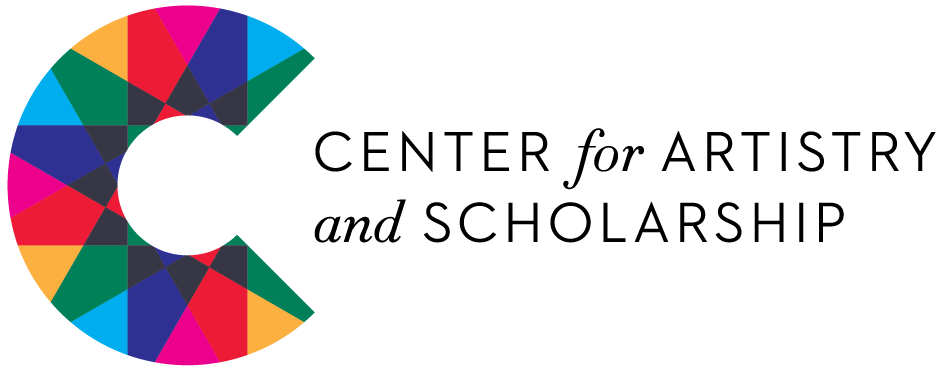"Just Work Harder"
We are sharing reflections on and excerpts from Center for Artistry and Scholarship’s Executive Director Linda Nathan’s new book, When Grit Isn’t Enough, published October 2017 by Beacon Press. In the book, Linda investigates assumptions that inform our ideas about education today, revealing how these beliefs mask systemic inequity. Drawing from her experiences as the founding headmaster of Boston Arts Academy (BAA) and more than 80 interviews with alumni that she conducted after she stepped down, When Grit Isn't Enough argues that it's time for policy-makers and educators to face these uncomfortable issues. It also explores how we need room for creativity and student-centered teaching and learning to better serve all students, increase college retention rates, and develop alternatives to college that do not disadvantage students on the basis of race or income.
Linda Nathan starts “Just Work Harder,” the third chapter of When Grit Isn’t Enough, by observing, “We tell students that if they work harder, they will succeed.” We sure do - and it’s not only educators who say this. In many homes, including mine, parents perpetuate this message. I certainly did when it came to my oldest son, who is now a senior in high school.
My family and I are privileged. We’re white and our families have been in the United States for several generations. Our three children live with two parents who went to college, as did their grandparents. We’re both employed and fairly compensated. We have enough money, and sometimes a little extra to take a trip or have some fun.
Our kids attend public schools in Providence, Rhode Island, where they’re a significant minority; less than ten percent of our city’s public school students are white (though most of their teachers are white). Their friends and classmates are from dozens of different countries, the widest possible range of socioeconomic backgrounds, and are collectively a gorgeous collective of cultures, languages, and experiences.
We have high expectations for our children, and have consistently pushed them to excel. We don’t want them to coast on privilege or to fly under the radar due to their fluency with social norms and a shared cultural background with their teachers. We push them to work hard.
In eighth grade, our oldest son started struggling in school. Though he’d had his low moments (weekly nightmare: those elementary school spelling tests), he’d generally held his own. But now, his teachers were dissatisfied with the results, particularly when it came to class participation. They sent him to the office a few times for being disruptive, and his grades spiraled down. After a few frustrating weeks, we gathered for a meeting with all of his teachers, and a few things became clear. Those teachers who assigned frequent writing tasks noted the difference between the on-demand in class work (which was handwritten) and homework (done on the computer). You’d have thought that a distracted sixth grader produced the handwritten work, and a thoughtful tenth grader wrote the word-processed assignments.
Other teachers disagreed, characterizing our son as disruptive and disengaged. But the writing disparity showed us that his behavior was a symptom, not the problem. Subsequent testing (which wasn’t readily forthcoming from the school district and for which we paid out of pocket) revealed our kid to be dyslexic and dysgraphic. Throughout his years as a student, he had pushed through with these significant learning disabilities until the work just got too challenging. With tremendously hard work - and a 504 plan with appropriate accommodations - he has thrived in high school, especially when he has had opportunities to share his learning through projects and other creative avenues.
After reading When Grit Isn’t Enough, I see his turning point differently. Though hard work - we can call it grit - has been an essential aspect of our child’s success both before and after his diagnosis and accommodations, that hard work alone absolutely wouldn’t have been sufficient. We are beyond thankful that thoughtful teachers spotted his writing disparity, that we had the resources to obtain a diagnosis relatively quickly, and that skilled educators have helped him succeed. It helps that the law is on his side, too.
Linda writes, “‘Grit’ puts the focus on student initiative, often ignoring social and economic factors that can undermine even the best of efforts.” In our son’s case, social and economic factors played a significant role, making a substantive and speedy diagnosis possible. My own training as an educator, which included work teaching students with learning disabilities, was an asset. But the outcome wasn’t a given. We might have used our own veneration of the importance of “hard work” as a reason to blame our kid for being disruptive. We might not have been able to get access to high-quality psychological testing. Our privilege has made a real difference, even though the law and special education systems exist to create equity. In our son’s case, grit really hasn’t been enough.
As our son gets ready to head off to college - where his work habits will stand him in good stead and where we hope he’ll find plenty of academic joy - I think of his classmates, the majority of whom are black and brown, who will be the first in their families to head to college, and who will be navigating the cultural, racial, systemic and other obstacles that Linda describes. Our kid will have structured help and accommodations, to which he is legally entitled. His friends, facing their own challenges, will be largely on their own. As Linda writes, “We must not forget that our schools and communities exist within a racist society that is replete with systemic oppression. Breaking those barriers requires more than one individual’s efforts. Our work as teachers, school leaders, and policymakers is not complete until we continue to insist on change.”
Jill Davidson is the Program Director at the Center for Artistry and Scholarship.

